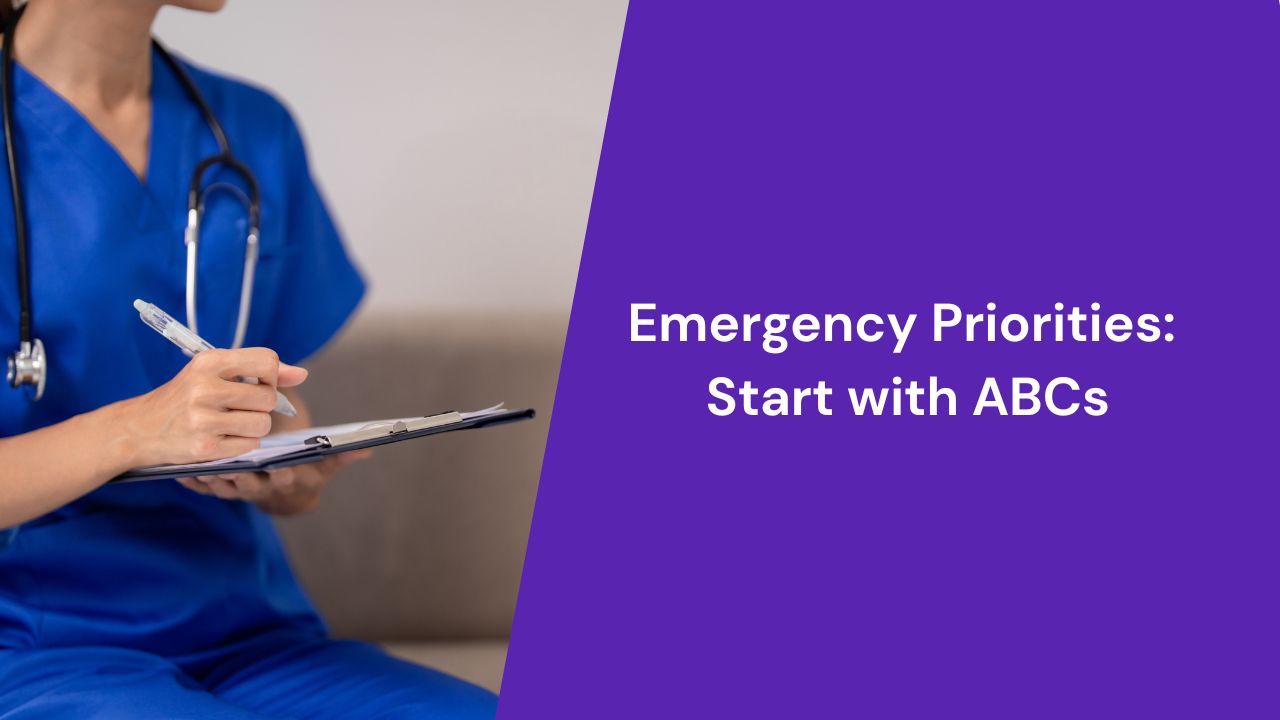A career in nursing can be extremely fulfilling. If you’re passionate about helping others and want to have a positive impact on their lives, being a nurse is a great option. Moreover, nurses are more needed than ever throughout the nation. In fact, the U.S. Bureau of Labor Statistics (BLS) projects that by 2031, the country will require an extra 193,100 registered nurses (RNs) per year—oh hey, job stability.
So, what’s the first step to becoming a nurse? You guessed it: earning a degree in nursing. And yes—without sugarcoating it—a nursing education entails a lot of studying, taking exams, and spending a reasonable amount of time on your feet during clinical rotations. But, becoming a skilled nurse is at your fingertips if you focus and put in the work. A solid nursing education will equip you with theoretical and practical skills to work in a clinical setting.
If you are ready to take on the educational path to becoming an RN, keep reading to learn what degree you need to become an RN and what coursework you’ll need to complete to become a registered nurse.
How Can I Earn a Degree as a Registered Nurse (RN)?
The best thing about nursing is that it’s a dynamic field with a wide range of possible career paths. From choosing to become a certified nursing assistant (CNA) to continuing your studies to become an advanced practice registered nurse (APRN), working in healthcare offers job security, a chance to develop new skills, and the opportunity to grow professionally with each new day on shift. However, if you have your heart set on becoming a registered nurse, there are specific educational requirements to fulfill.
What Is an RN Degree?
An RN degree is the necessary education and training to become a registered nurse. This degree prepares students to provide medical care, administer certain drugs, and treat patients in collaboration with doctors and other healthcare professionals.
You have two main choices to earn a degree as a registered nurse: an Associate Degree in Nursing (ADN) or a Bachelor of Science in Nursing (BSN). Nurses with an RN degree, whether an ADN or a BSN, must pass the National Council Licensure Examination for Registered Nurses (NCLEX-RN) and be licensed in their state to begin applying for nursing jobs.
What’s the Meaning of a BSN in Nursing?
BSN stands for Bachelor of Science in Nursing, an undergraduate-level degree for aspiring registered nurses. If you decide to pursue a BSN as a prospective nurse, you must study at an approved and accredited university that can award a Bachelor of Science with a Major in Nursing. A BSN is an academic degree that generally takes four years to obtain. Coursework may cover nursing science, leadership, research, and other subjects relevant to nursing concepts.
Is There a Difference between RN and BSN?
Yes, RN is the acronym for registered nurse and refers to a nurse who has completed either an ADN or a BSN. BSN is the abbreviation for Bachelor of Science in Nursing and refers to a nurse who has completed their bachelor’s degree.
Is an ADN Nurse and a BSN Nurse the Same?
No, an Associate Degree in Nursing requires only two to three years of study, whereas a Bachelor of Science in Nursing takes approximately four years. Although you will have many career options with either degree, a registered nurse with a bachelor’s degree in nursing may have even more job opportunities and perhaps higher-paying gigs than a nurse with an associate’s degree in nursing.
What Is a BSN RN?
RN BSN or BSN RN is how nurses can formally display their nursing credentials. The credential "BSN RN," often displayed on a resume or nursing badge, can demonstrate to employers, patients, and nursing colleagues that you have earned a degree and meet specific standards established by your nursing school and state licensing board. RN vs. BSN vs. ADN vs. all other nursing credentials can get tricky. With that in mind, the American Nurses Credentialing Center (ANCC) has developed a credential order criteria (in simple terms: a guide) that can help you feel confident when listing your nursing acronyms and credentials.
Once I Have My RN Degree, Where Can I Work?
After you have earned your nursing degree, passed the NCLEX, and obtained your state license, it’s time to break a leg—a.k.a put yourself out there—and apply for a job! One 2022 survey by the American Association of Colleges of Nursing (AACN) showed that for BSN students, the employment rate at graduation was 77 percent, rising to 93 percent four to six months after graduation. Yet, whatever nursing degree you carry, you can be confident that your nursing skills are in demand in various medical settings. Some of the most common places RNs can work are the following:
- Hospitals
- Physicians' Offices
- Psychiatric and Drug Rehabilitation Centers
- Surgical Clinics
- Nursing Homes
- Urgent Care Centers
- Home Care Health Centers
- Schools
It’s possible that your clinical experience while in nursing school gave you a snapshot of what specialty area of nursing you want to work in. Whether it is pediatrics, geriatrics, medsurg, or another, you should be able to find jobs in the area you are interested in.
How Much Can I Earn as a Registered Nurse?
You’re in luck if you have recently completed a degree to become a registered nurse. That’s because nursing job opportunities for RNs are ample, and a registered nurse can expect to make a competitive wage. Based on the latest data from the BLS, registered nurses earn an average of $42.80 per hour or $89,010 a year. This pay rate, of course, can fluctuate up or down depending on several factors, such as your state, your education, and what nursing industry you decide to apply for a job in. In any case, there should be a range of high-paying nursing gigs to choose from.
Is Nursing School Worth It? Short Answer: Yes!
When you plan to earn a nursing degree, you can expect a rigorous courseload with long days of classes and strict deadlines. So, while nursing school isn’t a walk in the park, many nurses who graduate with a nursing degree have promising careers. Plus, helping others get well and being a part of a respected profession can be tremendously emotionally rewarding.
Is nursing school hard? Yes. Is it worth it? Double yes! If you have chosen to study and become a nurse, all your hard work will pay off. There are many benefits to pursuing an RN degree today, including high earning potential, career security, and fulfilling and challenging work daily. Already a registered nurse? Find a per diem nursing shift in your state and start earning today. Stay up-to-date with the latest nursing trends by reading our blogs about the best water bottles for nurses and which scrubs are most popular for healthcare workers.











.jpg)
.webp)

